Hello and welcome back to the Digest.
Today we are covering two stories — one hopeful and one not at all. The stories are of Yakutian punk Aikhal Ammosov and Moscow medic Nadezhda Buyanova.
As always, feel free to reach out to Dan.storyev@ovdinfo.org with questions or concerns.
In solidarity,
Dan Storyev
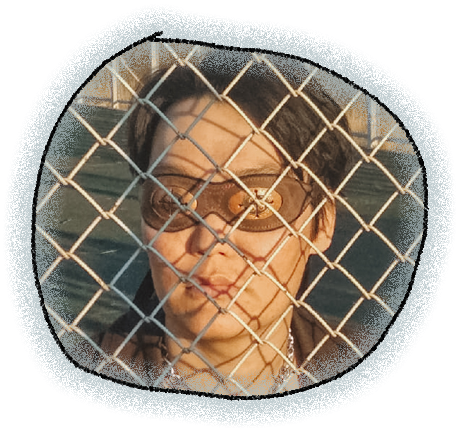
Aikhal Ammosov
International solidarity helps Sakha antifascist escape Kremlin prison
I have repeatedly covered the Sakha Republic / Yakutia in the Digest. This India-sized Russian region is home to brave activists and a fascinating history. If you would like to read more about it check out our issue #20. Aikhal Ammosov is a Sakha punk musician and activist from a small Sakha village. His story is one of bravery, hope and successful international activist cooperation — I am happy to cover it here.
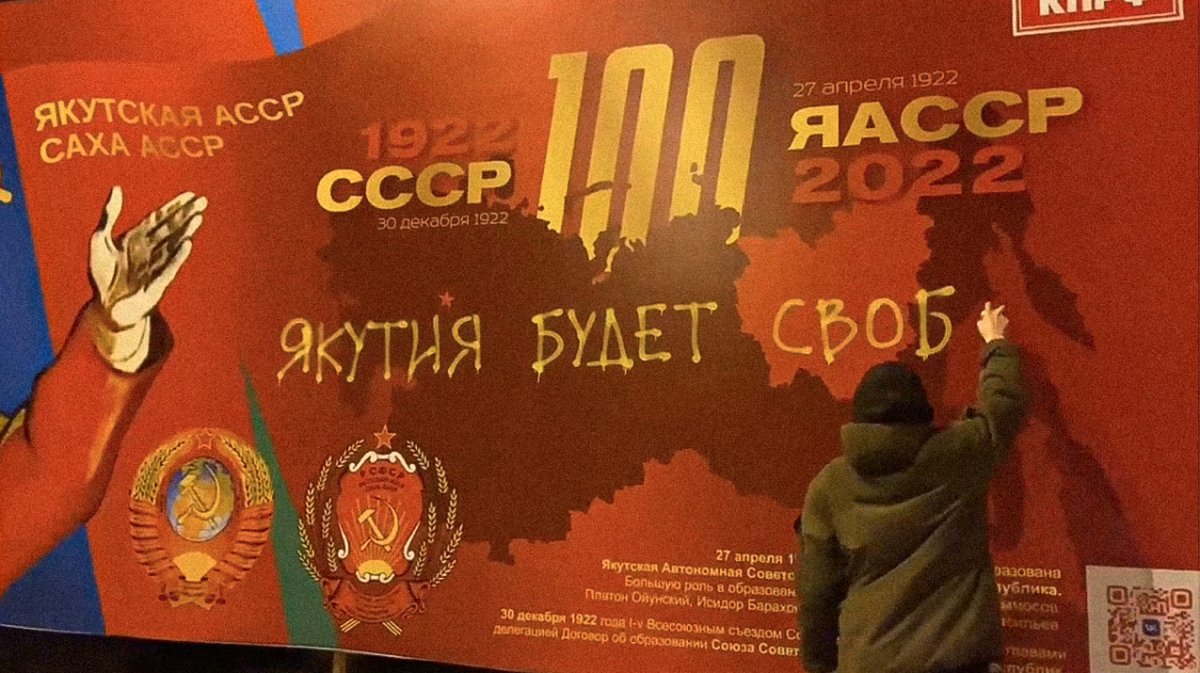
Aikhal’s government name is Russian-style—Igor Ivanov. The Aikhal moniker is a traditional Sakha name. The surname Ammosov hearkens back to Maksim Ammosov, Sakha revolutionary and statesman, a key figure in the Soviet revolution in Yakutia and Kyrgyzstan who was shot during the Stalinist purges.
Aikhal made his name as an underground artist, playing rock and punk music for over a decade. As Putin commenced his full-scale invasion, Aikhal became a vocal anti-war activist, staging solitary pickets, graffitiing and building grassroots solidarity in Yakutsk, the capital of the Sakha Republic.
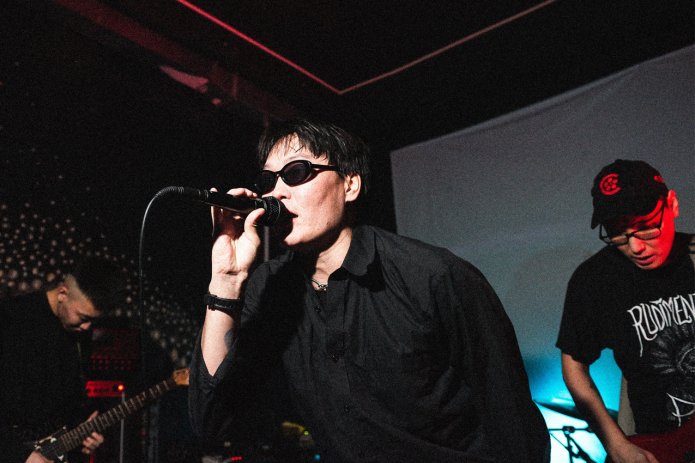
Aikhal and his comrades were politically active prior to the invasion, but only in 2022 did his activism get on the authorities’ radar. Aikhal was repeatedly fined and detained under various administrative code articles for his anti-war graffiti and posters. Aikhal eventually realized that he needed to flee. After he fled, the authorities launched a criminal case against him.
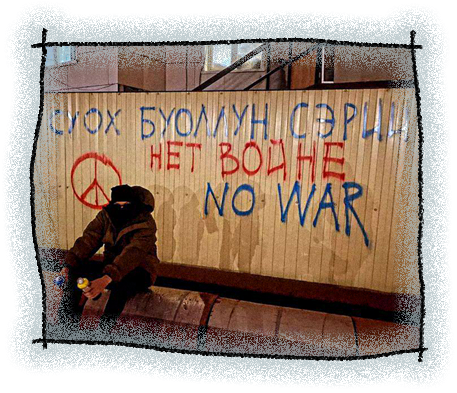
Russian citizens fleeing repression cannot simply walk into the EU, especially since policies of EU members bordering Russia and Belarus remain stringent towards refugees. Hence, even though Aikhal aimed for the safer option of Poland, he ended up in Kazakhstan, working as a cargo loader. While unloading another truck, Aikhal was detained by Kazakhstani authorities — on a request from Moscow.
He spent a year in pre-trial detention in Almaty, where Central Asia’s largest detention center is located. As Aikhal described it in his interview to Mediazona Central Asia, it was a melting pot of cultures and peoples — Arabs, Uighurs, Azeris, Russians, etc. Early in his detention, Aikhal was placed in a «terrorist» cell, as the Kremlin accused him of «justifying terrorism» for his anti-war stance, which led Aikhal to conflicts with jailed radical Islamists. Overtime, however, Aikhal built lasting friendships in jail, which came in handy after his release.
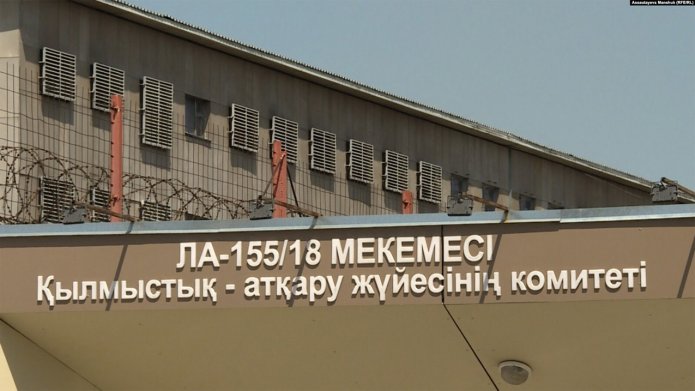
Aikhal was released from pre-trial detention after a combined push by Russian and Kazakhstani activists who worked across borders to lobby for his release and provide him with necessary items — like tonnes of books — in detention. But the release was almost sabotaged by a team of Kremlin agents who apprehended Aikhal immediately after he left jail. He ran the risk of being deported to Russia, but this is where the prison connections were clutch. The activist was rescued by a local Azeri gang that showed up en masse at the migration center, and intimidated the cops into finally letting Aikhal go.
Now Aikhal is safely in Germany on a humanitarian visa, where he arrived a few days ago. He plans to continue his left-wing activism and work together with anti-fascist activists to support jailed dissidents in Kazakhstan and Russia.
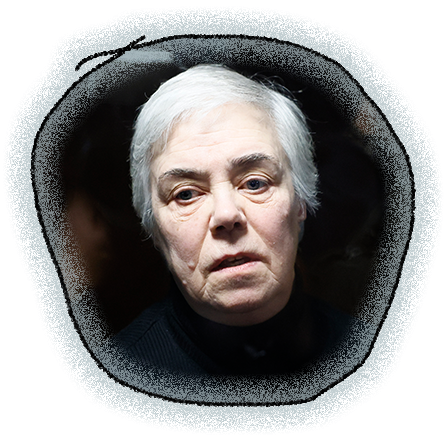
Nadezhda Buyanova
The story of one elderly medic jailed on trumped-up charges showcases the horror of the emerging snitching culture
From a segment that is somewhat hopeful I have to now move to a story that is much sadder.
Nadezhda Buyanova, 68, was born in Lviv, back when the western Ukrainian city was a part of the USSR. In the 1990s she received Russian citizenship and where she has been working as a medic ever since. Nadezhda worked as a pediatrician in Moscow, where she served for nearly 40 years, despite the fact that she had reached retirement age.
Nadezhda was snitched on by one Anastasia Akinshina, a mother who once brought her son to visit Nadezhda.
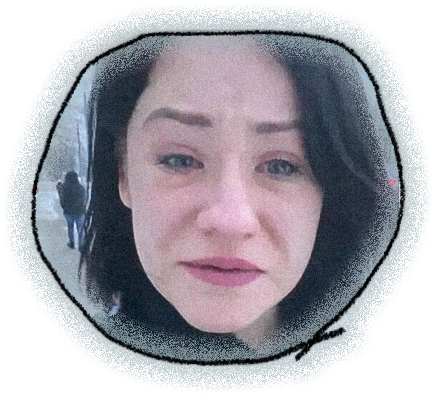
After the visit, Akinshina recorded a video claiming that the doctor insulted the child’s father’s service in the Ukraine war. Allegedly, Nadezhda asked why Anastasia’s son was nervous, the mother responded that «the father was killed in Ukraine». To which the doctor supposedly responded that the man was a «legitimate target».
The accuser changed her story several times in court and the confrontation was never corroborated by the hospital’s CCTV.
The video was picked up by a conservative pro-Kremlin Telegram channel which immediately launched a witch hunt against the elderly pediatrician. Her apartment was swiftly raided by the authorities who proceeded to utterly wreck it. They refused to let in a lawyer and confiscated Nadezhda’s passport. After two months they put her in pre-trial detention.
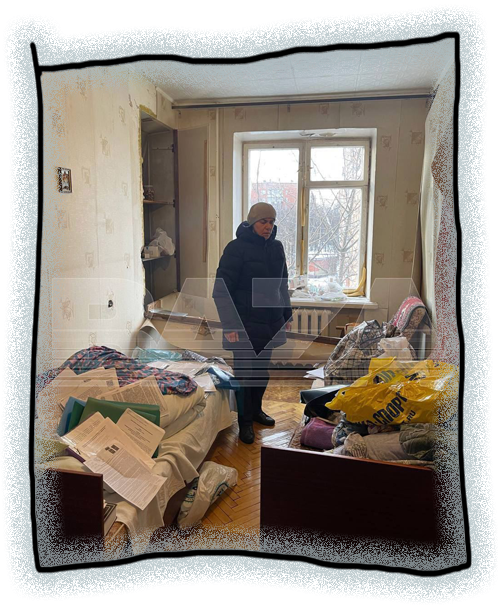
Yesterday, a Moscow court sentenced Nadezhda to 5 and a half years in jail for «spreading fake news about the military», also banning her from using the internet after she gets out. Buyanova refused to plead guilty stating in her final speech: «hatred is a deep and strong feeling which I, as a medic, do not experience. Without humanity there is nothing to do in medicine. I am a part of three nations — Russian, Ukrainian and Belarusian. How should I choose? Or should I choose malice like my accuser did?»
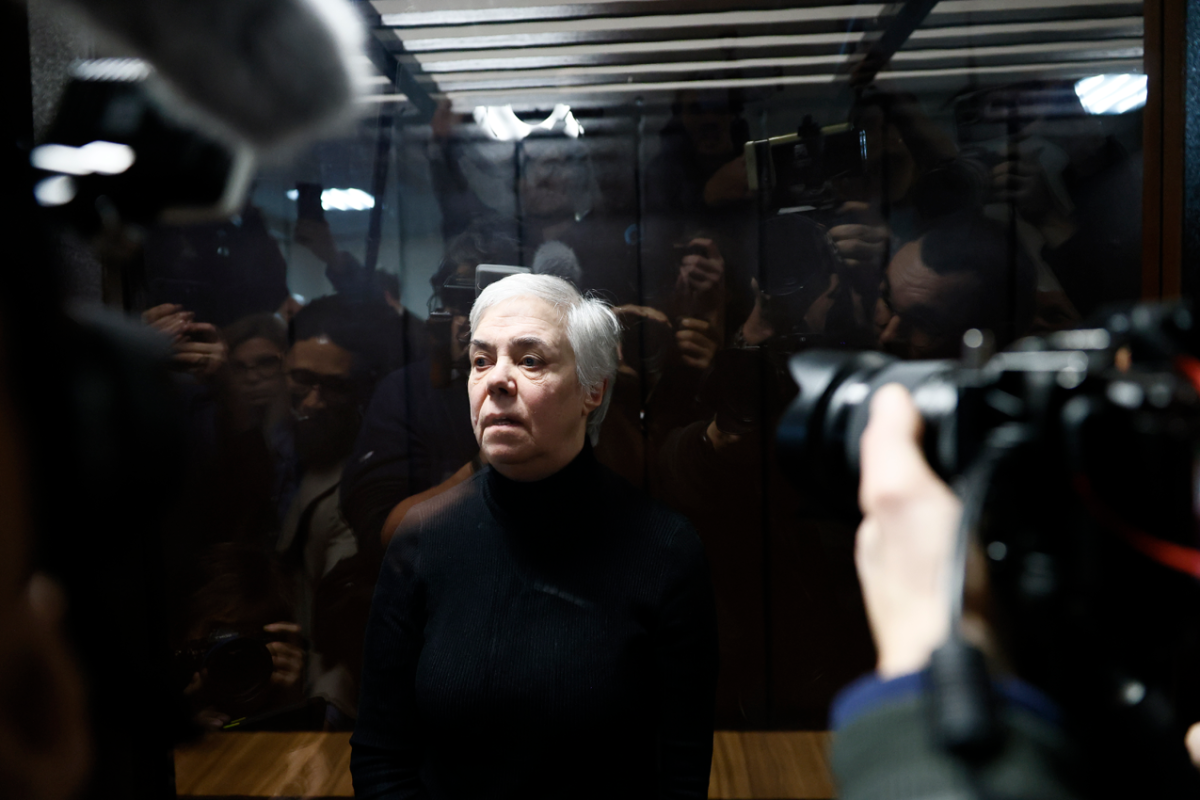
OVD-Info reading
- Putin’s Message to Trump — Riddle
- ‘It Is Impossible to Change Russia From the Outside’: Russian Opposition Politician Ilya Yashin — The Moscow Times
- In Numbers: How Russia’s Regions Entice Ukraine War Recruits With Money — The Moscow Times
Sources cited in the reading list are not necessarily aligned or in a formal partnership with us. It is just what the editor finds interesting.



